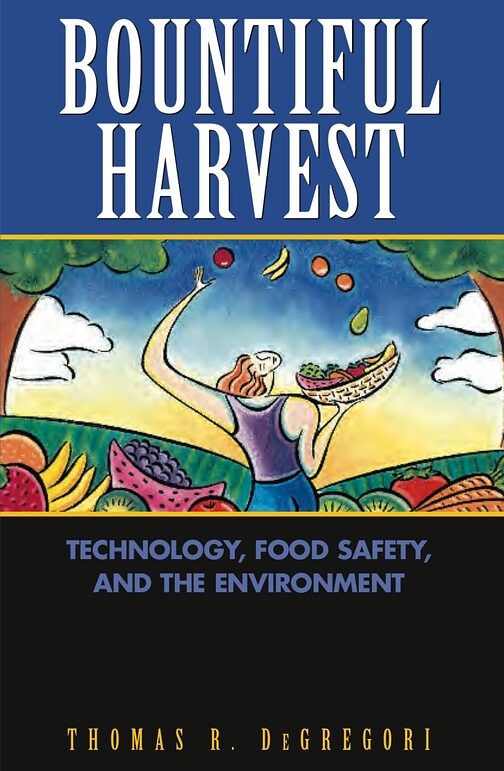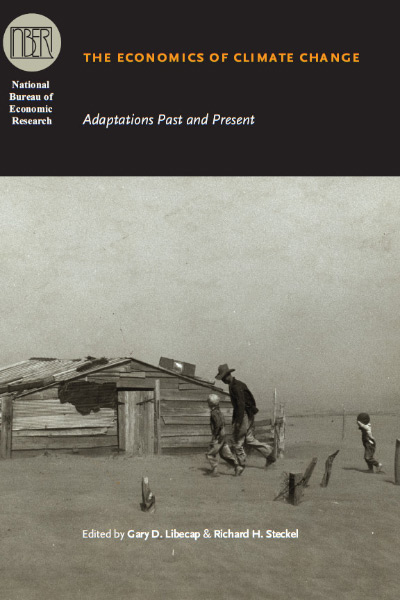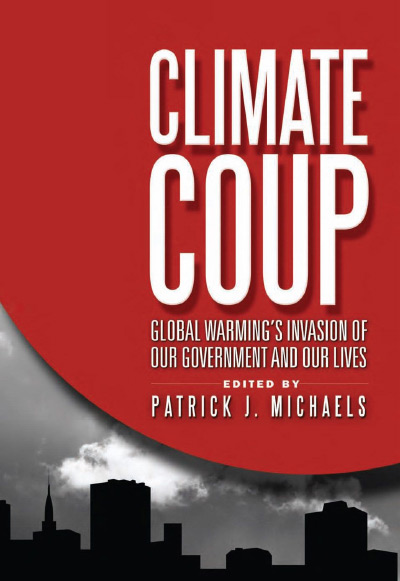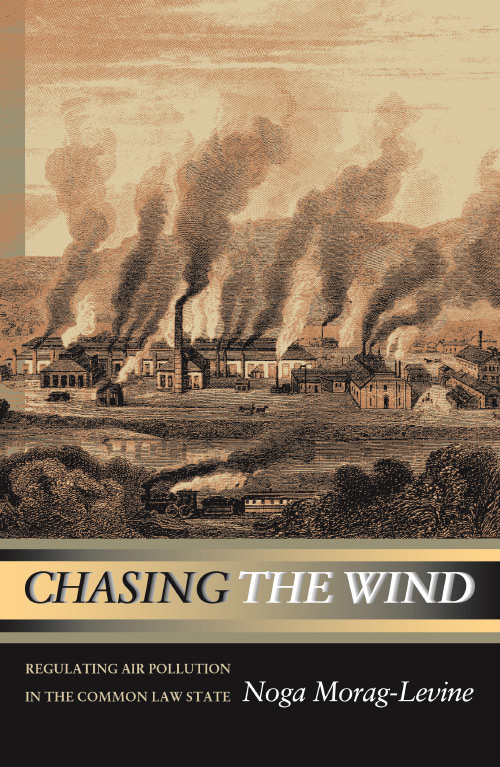Thomas R. DeGregori, an economist who specializes in the study of economic development, has traveled to Africa, Asia, Latin America, and the Caribbean more times than he can recall. His most recent books chop at the roots of obstructionist efforts of nongovernmental organizations that seek to prevent modern development in poorer countries. Certain organizations resist, for example, the distribution of genetically modified corn to the starving and prevent the construction of hydroelectric dams where people desperately need electricity. DeGregori wars against an antitechnology movement that oppresses poor people he evidently cares about—people he has devoted his life to helping. Indeed, he seems driven by compulsions nobler than those of the organizations that deliberately obstruct development in poor countries just as they also sponsor antigrowth oppressions through our domestic regulatory system.
The devil-and–Dr. Faust view has pervaded the twentieth century, keeping modern technology under fire from media bias that sensationalizes every hint of technological risks or hidden harm. Organizations have found exploitation of fears of technology to be a fruitful source of donations, and industries promoting natural or organic products have found lucrative markets among ignorant people driven by technophobia. DeGregori argues a contrary view of technology and notes some of the pitfalls in misguided efforts to back away from modern technology, especially from technology’s capacity to provide bountiful food. He boasts of advancing a politically incorrect view that technology is not the seducing destroyer of humans but rather their defining and distinguishing virtue.
DeGregori begins by describing humans as creatures distinguished by their acquisition and maintenance of tools. Humans are inherently creative, and technology consists of art executed through complex tools requiring specialization, social orga-nization, and systematic learning and transmission of knowledge. Technology manifests a unique expressiveness that otherwise does not exist in nature. Technology defines the core of human capability rather than a peripheral extension. It is more than the foundation of human sustenance; it distinguishes human perception. By the use of technology, we peruse the heavens above the Hubble telescope and the microcosm below an electron microscope. Through technology, we can see what we are and have been; we look not only around us, but also into our past and even into our own bodies by using modern noninvasive imaging methods. Human creativity of all kinds exploits technology, whether by recording music, transmitting written words, or creating motion pictures and television broadcasts. Modern technology does not alienate humans from themselves, but instead defines and manifests the natural human self. Civilization rests on domesticated plants and animals that could not have existed without human protection from the wild.
DeGregori focuses on misperceptions that technology is inherently destructive to the natural earth, advancing it toward a state of uninhabitability. Movies such as A Civil Action interpret statistically meaningless cancer clusters as if a corporate underworld was secretly poisoning everyone. Reinforcing preposterous fears that background traces of manufactured chemicals are causing trends in declining sperm count, the media ignore plant-originating chemicals of far greater significance. The World Health Organization labels tamoxifen a human carcinogen rather than endorsing its remarkable life-preserving effectiveness. Allegations indict technology for insignificant risks, whereas the risks of not using technology go unheeded. DeGregori discusses conceivably humorous pitfalls of “natural” and “organic” foods, citing evidence that increased consumption of “organic” foods has caused an increase in the incidence of food poisoning. Bacterial infections such as Escherichia coli—infections of the same kind that can originate from using manure to fertilize organic food naturally—claim many lives each year. Likewise, “health” foods such as unpasteurized juices, raw sprouts, and the like promote the reemergence of food-borne-pathogen problems previously thought eradicated. Even the vegetarian diet is hardly natural for humans; a balanced vegetarian diet is possible only because modern technology brings a voluminous variety of appropriate foods within our reach. Try fertilizing your lawn with manure: one thousand pounds provides the nitrogen available in a five-dollar bag of commercial fertilizer.
World crop yields would be, by some estimates, 70 percent smaller in the absence of pesticide use. Even Consumer Reports (1998) testifies that organic foods cost 57 percent more. Technophobes have succeeded in maintaining a prohibition on food irradiation in spite of its substantial, proven benefits. More significant, opposition to genetically modified foods has impeded the use of insect- and disease-resistant crop varieties that would help reduce the need for pesticides. The Luddites who oppose genetically modified plants perpetuate considerable hardship in poorer countries that might benefit especially from the improved food output and enhanced nutrition that come from bioengineering breakthroughs, including new salt-tolerant plants. Although the technology of genetically modified food products is probably among the safest of human achievements, opponents succeed politically by labeling them as “Frankenfoods” or “mutant grub.”
DeGregori is not a lone voice defending his commonsense position. The Hudson Institute’s Dennis T. Avery reveals that groups including Greenpeace and Friends of the Earth are lobbying famine-stricken African countries such as Zambia to persuade governments to prevent distribution of genetically modified corn donated by the governments of some of the world’s advanced industrial countries (Daily Articles, October 10, 2002, available at http://www.hudson.org). Avery laments that these environmental groups do not seem to care if their preferred policies are killing starving Africans. He notes also that donations for these environmental organizations are going up apparently as a result of such maneuvers and that the organizations dismiss the resulting premature deaths of Africans as inevitable—an attitude that DeGregori emphasizes in Bountiful Harvest.
DeGregori stresses that otherwise benign political movements are not the only ones to exalt nature excessively. He touches on the prevalence of such behavior among the Nazis in Germany. Feeling that they had a higher calling, they propounded bizarre doctrines of wildlife and animal protection that involved the degradation of people and sought to give the Germans a “blood-and-soil-rooted-garden” uncontam-inated by “alien species.” Some of the leading Nazis, including Adolf Hitler himself, advocated and practiced compulsive vegetarianism with a commitment to organic agriculture. Although DeGregori elaborates some of the Nazis’ back-to-nature traits, he stops short of linking Nazi mentality and practices such as shooting on sight human intruders who stray into vast wildlife protection areas in present-day Africa. (He elaborates on that theme in his subsequent book, The Environment, Our Natural Resources, and Modern Technology [Ames: Iowa State Press, 2002], pp. 33–37.)
Fear of carcinogens has reawakened real terrors, such as malaria and cholera. Halting water chlorination in Peru in 1991 killed nearly seven thousand people from cholera. Pesticides have increased food production greatly and reduced the cost of feeding people. Corn would cost 61 percent more and wheat 50 percent more if we did not use any chemicals. Before the advent of modern pesticides, people used less-sophisticated poisons, such as arsenic. If today’s chemicals cause cancer, they do so largely by increasing average human life spans so that a greater percentage of people get old enough to get cancer. DeGregori emphasizes that technology in the past century has brought great improvement in the lives of children. For political purposes, promoters of false fears about power-line radiation causing cancer and of inordinate sensitivity to insignificant pesticide residues recklessly exploit our love of children. DeGregori illustrates how children are particularly vulnerable to unwarranted impediments to technology because they are disproportionately technology’s beneficiaries. Various misguided regulations for food production have disregarded explicitly the safety of American children and have caused great hardship for children in developing countries that export food. Modern pesticides are much more a cure for human misery and death than a cause of them—in fact, the mortal risk from properly used chemicals is virtually fictitious. Impeding the use of chemicals results in many lives actually lost, especially in poorer countries.
The number of undernourished people in the world continues to decline, while improved food supply continues to enhance human health and longevity consistently. Food is cleaner today than it was in earlier times, and rising life expectancies challenge views regarding modern life as significantly more polluted than it once was. Science and technology, despite misuses by bad governments, overwhelmingly serve to increase the length and quality of human life at unprecedented rates by historical standards. Declining birthrates coupled with rising life expectancies and falling infant mortality mock the idea that modern technology is killing us. Moreover, the fraction of an average life spent with disability is evidently declining despite rising longevity. Infectious diseases rather than any sort of chemical pollution remain the substantial killer of children in developing countries. Although polio may have thrived from advances in public health and sanitation, this effect is hardly the case for most other infectious killers of humankind. Technology has sheltered us greatly from the harsher realities of the natural world; it remains the core of human potential for promoting the future good of humanity.
Craig S. Marxsen
University of Nebraska at Kearney
| Other Independent Review articles by Craig S. Marxsen | |
| Spring 2008 | Politically Contrived Gasoline Shortage |
| Winter 2002/03 | Prophecy de Novo: The Nearly Self-Fulfilling Doomsday Forecast |
| Summer 2000 | The Environmental Propaganda Agency |


















